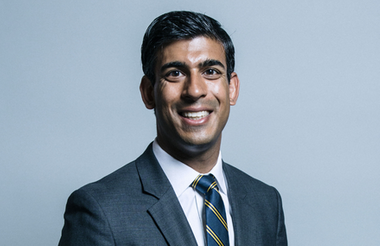Civil society leaders have been encouraged to “campaign with confidence” after prime minister Rishi Sunak yesterday evening called a general election.
Sunak announced outside 10 Downing Street that a general election will be held on 4 July, and that King Charles has agreed to dissolve parliament on 30 May.
Sector bodies responded to the announcement, with ACEVO and NCVO both urging leaders to campaign confidently to ensure issues related to their cause are on the political agenda.
In an article this week, Charity Commission chair Orlando Fraser said charity leaders “may see this as a critical moment to speak up for the cause you serve, and that is legitimate and healthy for our country”.
However, he warned charities that they must not “be seen to promote a political party or candidate” and encouraged them to avoid using “inflammatory rhetoric”.
Fraser co-authored an article with Electoral Commission chair John Pullinger in November, which reminded charities that they must register as non-party campaigners if they spend over £10,000 on regulated campaign activities in the 12 months leading up to the election.
Some charities leaders are running as parliamentary candidates including Medical Aid for Palestinians chief executive Melanie Ward and International Rescue Committee UK executive director Laura Kyrke-Smith.
‘Campaigning is a legitimate activity’
The regulator has also published guidance specifically for use by charities during the period between the announcement of an election, and the date on which an election is held.
It has summarised all its key guidance on campaigning in an election year on a website page published this week.
Scottish charity regulator OSCR also published campaigning guidance this week.
Rosie Ferguson, chair of ACEVO, said: “ACEVO supports civil society leaders to campaign with confidence, within the regulations, to meet their organisations’ charitable objectives and ensure key issues are on the political agenda at whatever point in the political cycle.
“The Charity Commission has made clear that campaigning is a legitimate activity for charities, within the legal framework, and this remains the case during elections.”
NCVO: ‘The real work begins’
Sarah Vibert, chief executive of NCVO, said: “The charity and voluntary sector has been working towards this general election for a long time, and now it has been called the real work begins.
“The campaign period is an opportunity for charities across the country to make their voices, and the voices of the people they represent, heard.
“It’s vital that whoever forms the next government listens to our message and understands the value that partnering with charities can bring in building a better, more equitable, society for all.
“NCVO will be working hard over the next six weeks to help make sure all parties listen to what charities have to say and will be on hand to help organisations understand how to campaign with confidence.
“Above all, we’re looking forward to the opportunities this election will create for us all to set out our individual and collective visions for a better future.”
CFG: ‘A real opportunity’
Clare Mills, deputy CEO of Charity Finance Group (CFG), said her organisation aimed to help politicians engage with the sector, including through the Civil Society Group of sector bodies.
“There is now a real opportunity for us to reach out to candidates and parliamentarians to build positive relationships and find lasting solutions to the many problems the country faces,” she said.
“CFG will continue to look ahead and use our voice to support charities across the UK so that they in turn can support others.
“There will be a huge raft of important and difficult issues for the new government to tackle, from poverty and inequality, to global economic, political and social instability.
“We will ensure that our advocacy work on issues including the simplification of VAT and gift aid, audit thresholds, the Digital Markets, Competition and Consumers Bill, remains as impactful as ever.
“We know that when charities are able to manage their finances and resources well, and where there is strong financial leadership and governance, the sector has much greater impact and everyone benefits.”
‘Fundamental rethink’ of government relationship needed
Leah Davis, head of policy and external affairs at New Philanthropy Capital (NPC), said her organisation’s research shows the general public wants government to work more closely with charities.
“To do this the next government will need a fundamental rethink of its relationship with charities,” she said.
“It will need to create much more effective partnership models, working side-by-side with impactful charities to deliver better public services, reduce crime and inequalities and improve the health of the nation.
“We will be arguing this case, and would encourage charities to make their case too – that indeed is one of the best ways that they create impact.”
Maddy Desforges, CEO of NAVCA, said: “We are looking forward to working with a new government to achieve the holistic, long-term change that is needed.
“We see a clear need to better meet the needs of individuals, households and communities, who are currently being let down.
“VCSE organisations supported by quality local VCSE infrastructure are crucial in achieving this.”
‘Vital’ that next government engages charities
The Directory of Social Change said the upcoming election would be a “big opportunity for charities to make their voices heard”, as could a fresh intake of MPs.
“Whichever party or parties form the next government, it’s vital that they genuinely engage with charities and wider civil society to address the many challenges our country faces,” a spokesperson said.
“We already know that over 100 MPs are standing down, and the intake of new MPs could be further boosted depending on the results of the vote.
“This will create fresh opportunities for charities to influence the political process in the future.
“It’s really important that charities and trustees continue to speak out on behalf of their beneficiaries, including during election times, within the law of course.
“They should review and understand the guidance from the charity regulators in the different parts of the UK.”
Related articles











